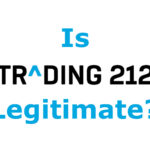Ethical investing comes with many uncertainties and complexities. In this guide we demystify what ethical investing is, what it means and how to go about picking the best investments for you, without negatively impacting your returns.
What is Ethical Investing?
Ethical investing is an approach to selecting investments that meet with your morals and ethics. Everyone has a different view of ethical investing as ethics are by definition subjective.
Ethical investing is the approach of picking ethical investments. Whether that be individual stocks that meet ethical criteria or wider investments such as ETFs that factor in or our particular investments based on defined criteria.
Principles of Ethical Investing
Ethical investing is often grounded in Environment, Social, Governance (ESG) factors.
| Environmental | Social | Governance |
| Waste Management | Labour standards | Board composition & structure |
| Pollution | Diversity | Executive compensation |
| Carbon Emissions | Supply chain | Political affiliation and contribution |
| Water use / scarcity | Product safety and usefulness | Bribery and corruption policies & oversight |
| Energy efficiency | Community impact | Sustainability oversight |
| Customer privacy |
Every index will have subtle variations on how they apply this approach but some common themes will be to screen out certain sectors or types of company, for example:
- Alcohol
- Tobacco
- Gambling
- Adult content
- Fossil fuels / non-renewable energy
- Ethically questionable companies
- Weapons manufacturing
Every index or ETF will apply these principles in slightly different ways. For example, some may allow energy companies investing in fossil fuels, but only if 80% of their effort is on renewable energy. Others may allow weapons manufacturing, but only if they do not manufacture controversial weapons such as cluster munitions. Some may set different tolerances for what they deem unethical activity. This may mean having to meet a set bar for pay for foreign workers.
Trade offs in Ethical Investing
Ethical investing does come with trade offs, however most of these are manageable.
More Limited Investment Choice
If you screen out investment options you will have less choice. Slightly fewer options in such a wide pool will not make a huge impact on your options, however the more stringent your criteria are, the fewer options you may have.
Many ETFs will offer an ‘ESG’ version. If you are reasonably flexible, this will screen out the areas you care most about avoiding, perhaps at the cost of screening out a few sectors you care less about.
The more specific you are with your ethics however, the more limited your choice may be. If you screen out gambling and tobacco, then many options will still be available to you. If you want to screen out companies involved in manufacturing meat such as pork then the choice for a global ETF with this screened out will be much more limited, but there are still options out there!
Profit vs Ethics
Depending on your ethical choices, you may find you are screening out companies that are big players in the stock market.
Take NVIDIA for example. NVIDIA has been on a huge upward trend for the last few years and has been a major contributor to returns in many global indices including the S&P 500 and the MSCI World Index. NVIDIA now has a market cap higher that the entire FTSE 100. As a result it makes up 3.47% of the hugely popular Vanguard ETF VWRL.
NVIDIA is up a staggering 3500% in the last 5 years. If you removed NVIDIA from your investments you would have missed out on this gain.
The flip side of this argument is that you would have also missed out on the losses from other companies had you screened them out. That said losses are capped at 100%!
Consider that you no one can predict the future, so it’s impossible to say whether screening out companies for the future will actually hinder your portfolio overall. Screening out sectors could be a good or bad thing. That said, over the last 5 years screening out ‘big tech’ because you maybe do not approve of their energy consumption would have really hampered returns.
How to Invest Ethically?
Many of the same principles that we discussed in our blog about picking the perfect ETF apply to ESG investing.
You can invest ethically by using a standard stock broker, whether in a General Investment Account (GIA) or an Individual Savings Account (ISA).
In the case of ethical investing, it requires a little more work to narrow down exactly what you want to invest in. Many providers will offer ETF searching with an ‘ESG’ screening aid.
ESG Screener
When trying to find ETFs that meet your ethical investing values, you may find the following key phrases useful to narrow down your search:
- ESG
- A common acronym on ETF names to indicate Environmental, Social, Governance. ETFs with this in the name will have performed some level of screening.
- ESG Enhanced / ESG Focussed
- Just like ESG but a little more emphasis, or a little stronger on the screening.
- Sustainable
- Often used as a similar term to ESG; the man focus is on climate change but other areas may have been screened out also
- World Paris-Aligned Climate
- Another common phrase you’ll find in the title of an ETF to indicate a focus on investments aligned with the Paris Agreement which looks to reduce climate change. For example, you’ll find companies focussed on fossil fuels have been screened out.
Islamic or Shariah Investing
Islamic investing is often overlooked as investors may not identify as Islamic. The underlying principles however may match investors values.
Shariah investments will screen out:
- Alcohol
- Tobacco
- Gambling
- Adult material
- Weapons
- Pork
- Conventional banks and insurance
Holdings Screening
Most brokers will show a list of the top 10 holdings for any ETF but it can be a bit of a challenge to get the full list.
All ETF providers are obliged to publish a full list of holdings. If you look on the ETF provider’s website you’ll be able to download the full holdings list and look for any specific companies you want to screen out.
Note it can be a bit of a challenge to find the exact ETF, as some will be listed on multiple stock exchanges under multiple ticker symbols. The best bet is to simply search for the name of the ETF on the provider’s website and then look for your ticker symbol in the detailed information.
ETF Factsheets
A key resource for ethical investing is the ETF factsheet. Linked by every broker when browsing the ETF, the factsheet will describe the make up of the ETF.
Using the example from V3AB, the Vanguard ESG Global All Cap ETF, we can see in the Objectives and Investment Policy section the principles for the construction of the ETF.
If the factsheet does not provide the detail you require then most ETFs will have an investment supplement document, found on the providers website. In this case more information about V3AB can be found on Vanguard’s website.
Benefits of Ethical Investing
The benefits of ethical investing include those for investing more broadly. You can grow your wealth over time and decide the risk level you want to take.
The key difference with ethical investing is that you get to decide what investments fit your morals and ethics. In doing so, you can help support entities that you believe in and you want to support, hopefully shaping society and the environment for the better.
Ethical investing will likely bring you closer to the detail of what you invest in. As a result you’ll learn more about how investing works. You will be able to fulfil and back your personal values and hence you are likely to get more personal satisfaction out of your investments, as well as monetary growth.
Ethical Investing Myths
There are many misconceptions about ethical investing so it’s important to do your research.
Ethical Investing Means Lower Returns – FALSE
Investments go up as well as down.
Whilst screening out any sector of the stock market will impact the diversification of your portfolio, it’s impossible to say whether this will negatively or positively impact your returns.
Take gambling companies for example. Screening them out of your investment portfolio at a time when governments are cracking down on gabling and money is tight for the general population is perhaps unlikely to have any negative impact.
It’s also worth noting the potential gain of screening out certain sectors. Even if a sector performs well, if, as a result of screening out that sector your portfolio is weighted towards other areas, e.g. big tech, then you’ll likely have gained more over the last few years verses a more diversified portfolio.
Clearly returns will vary depending on what types of company you are screening out of your portfolio, but it’s unfair to say returns will be lower. You can likely find different periods of time that will prove one way or the other, but unless you have a crystal ball for the future using past performance as an argument one way or the other is almost certainly a guessing game!
Ethical Investments are Hard to Find – FALSE
I’ve found ethical or ESG screened investments and ETFs by accident. Most brokers will even have a search filter you can use to narrow down your ETF choices to those that are defined as ethical.
The only had part of finding ethical investments is doing the fact checking to make sure the investment meets your personal values. If you want a generic ‘morally good’ ETF then that should be just as easy to find as a generic ETF. It’s a little more complex if you want to screen our particular niche companies or sectors.
You should always read the key facts document for any ETF, so theoretically reading the bit about how the index is comprised should be no additional effort. The best approach is to come up with a shortlist of ETFs that on the surface meet your criteria and then refine down by reading the index screening process for each ETF.
Only Wealthy People Can Afford to Invest Ethically – FALSE
Many platforms will allow you to invest from as a little as £1. What you do with that £1 is completely up to you. You could put that money into a single hand picked ethical stock. Alternatively you could invest in an ESG screened ETF. Or you could invest in a commodity you believe in.
Ethical investing is just the same as ‘traditional’ investing, just a little more attention is paid to what you invest in. A minority of ETFs may cost a slightly more year to year, fractions of a percent, to run the additional screening process however many ETFs won’t charge a premium for this.
My ESG Investments
I’m not personally driven towards ethical investing if it’s going to cost me more, either in ongoing fees or ongoing costs. I do not however want to actively support gambling or tobacco.
When looking at some popular global ETFs – my go to investments, I’ve found that the percentage of companies falling into these categories is quite small.
There are however a few ESG ETFs that screen some companies out without charing too much for the pleasure. In fact I stumbled across LGGG which is a developed market ETF. Whilst not explicitly marketed as an ESG or ethical ETF, the fact sheet states:
excludes companies:
Quote from the LGGG ETF Factsheet stating their policy
(a) engaged in pure coal mining; (b) involved in the production of controversial
weapons, such as cluster weapons, anti-personnel mines or biological and
chemical weapons; or (c) that, for a continuous period of three years, have
been classified as being in breach of at least one of the UN Global Compact
principles
LGG is a popular ETF charing 0.10% which is pretty cheap for a developed market ETF. It makes up some of my portfolio.
My wife is a little more ESG focussed and she’s found it relatively easy to find broad exposure ETFs that screen out companies she doesn’t want to support. Her returns are similar to mine and the ongoing costs aren’t too different.
If you want to invest sustainably then go for it. Back your values.








